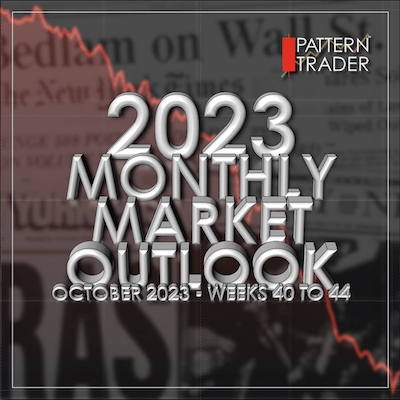Why Traders Fail – Part 2
This week, we look at a controversial reason why most traders fail –
The Attitude
It starts right at the start where most newcomers think that the market can be a get-rich-quick plan. This is akin to thinking that the market is like a casino. Consider this fact – the house ALWAYS wins. So if you treat the market like a casino, it will make you feel like most gamblers do. Gamblers always win a few but lose a lot.
Some trade like the market is a system to be beaten. Such traders ought to give themselves more credit. You’re insulting yourself if you have this attitude. To think that the market is a system is to include yourself in that system. Therefore, the system you are looking to beat includes you. Give yourself some respect and while you’re doing that, give the market the same respect – we’re not robots in the market and we’re definitely not part of a system. We’re humans that are driven by emotions. The market is an emotional place, not mathematical. You cannot have a system to beat an emotion because there is no math that can factor emotional irrationality.
Then we have those that don’t realize how unscrupulous the market is. Their ignorance is evident when they correctly assume the market is not that clear cut but will still buy into the hype. What is obvious is that the market is made up of all kinds of people especially those who will do anything to get an edge, even through illegal and criminal means. It is also full of experts who have spent years in Harvard and Princeton and then more years with established institutions such as Goldman Sachs, Morgan Stanley and the like. They have hugely experienced mentors to guide them to become the next generation of world class traders. These people have so much leverage and influence on market sentiment and to make their advantage more unfair, they collude with their competitive counterparts in order to corner the larger market for their own gains. With such power, how is a three-day workshop graduate expected to beat the odds? Yet more and more look past the obvious and end up throwing their hard earned money to the power-brokers.
There are also those who buy into the idea that the market can be analyzed fundamentally with valuations. Such valuations do help to reduce risk. But that is an investment-styled strategy and not suited for trading. Trading is way faster and seldom allows the security time to flex its fundamental muscles before the next gyration takes out the profits. Read the previous lesson to know the difference between the investor and the trader and you’ll have a clearer understanding of this.
Others rely purely on technical analysis. I can’t deny that I base a lot of my analysis on technicals. But that is not the end all. All it takes is one bit of macroeconomic news and all that technical analysis is out the window faster than you can say “Cut loss!” TA is great as long as there is no news to upset the prevailing sentiment and as long as volumes don’t dip. But the market is never so generous. So in the end, TA is only a “best guess” … and contrary to common belief, TA is not the best guess of when to buy or sell – rather it is most reliable when used to guess the best potential against the least risk or the most risk against unfavorable potential.
Get Professional or Get Out
Then there are those who believe that a good tip from a trader is the key to easy money without putting in any effort. For this, I have only one analogy; Would you take a heap of hard-earned money out of your wallet and give it to someone you hardly know and expect to get it all back after a few weeks? And if that person was trustworthy, would you still do it? And do you really believe that it will come back with more than you gave him? If in life we don’t make such practices, then the same principles should be applied in the financial world and most of all, in the market. The desire to get-rich-quick-and-easy makes simple people do really silly things with their money. And it is always only after getting burned that you hear those famous last words, ” … if only I knew …“. Yes, you’ve heard the horror stories time and again and so has everyone else. Yet people continue to write new chapters into this horror story ever so frequently … all in the name of greed, gluttony and sloth.
The financial markets are like an office block in a busy business district. The people who go to work there are serious professionals who take what they do very seriously. They are highly experienced, very influential and extremely powerful. It is also like a hospital where the surgeons, doctors and nurses are highly qualified and trained professionals. People put their life in their hands everyday.
Then one day, some over-zealous graduate with three days of workshop knowledge comes into this office block and expects to beat everyone out of their jobs. Or this hyped-up graduate with only three days of experience comes into the hospital and expects everyone to trust him with their lives.
Okay, maybe that is a bit of a stretch but the implications are no different. Every professional takes years to study his craft and then spends more years honing the skills with hours and hours of practice and hard work. They also have a mentor to constantly guide them till the day they are ready to go solo. There is no easy path to success and there will be failures along the way. The financial market is to be respected and feared. There is no other attitude except humility that will help a trader survive it.
More Losers Than Winners
It is said that more than 80% of the market is made up of those who lose and less than 20% are winners. The truth is that those statistics apply to any profession – how many top rated lawyers, engineers, surgeons, etc are there compared to the many also-rans?
The big money is always at the top where there are few who have it while the small money is at the bottom where most have to fight for it. And there are only two ways to be at the top – either you are already there or work hard to get there.
This article was first published on 29 March 2010
Copyright © Pattern Trader™ by Conrad Alvin Lim. All Rights Reserved
~~~~~~~~~~~~~~~~~~~~~~~~~~~~~~~~~~~~~~~~~~~~~~~~~~~~~~~~~~~
Conrad Alvin Lim has been an on-line trader since 2004. Today, he runs FinancialScents Pte Ltd (incorporating Pattern Trader™ Tutorial & Tools), the starting ground for many novice retail traders and has groomed many an institutional trader, financial analysts, bunker traders, dealers, brokers, remisiers and financial graduates from all over the world. More importantly, the Tutorial has outlived almost all its peers in continuously supporting and growing its graduates well into its second decade.
He is known for his unique and simplified blend of Macroeconomics and Financial Management for his Defensive and Psychological approach to trading and is sought after for his intimate knowledge of Macroeconomics, Sector Rotation, Defensive Analysis, Financial Psychology and short-term trading techniques.
To find out more, visit conradalvinlim.com



